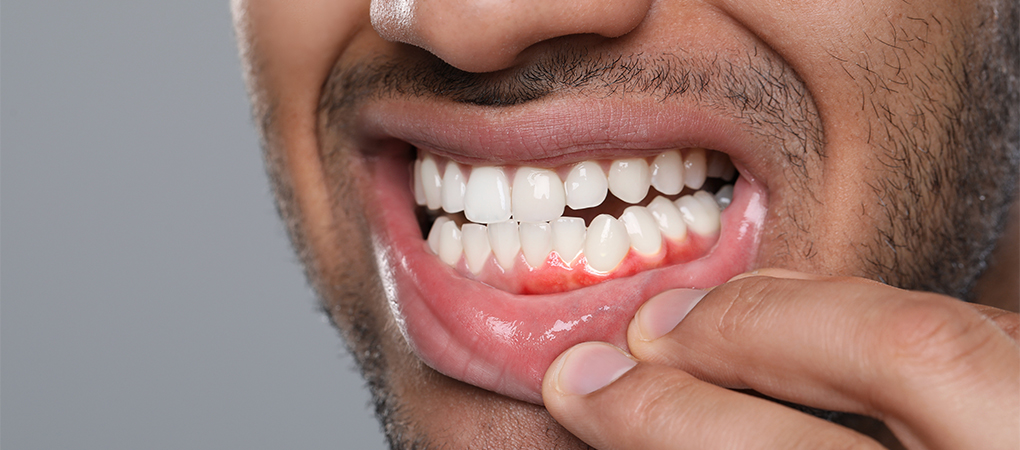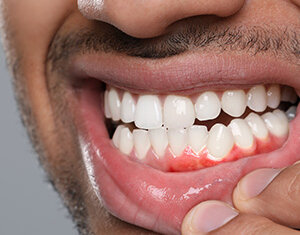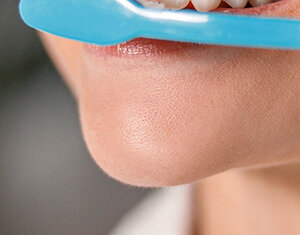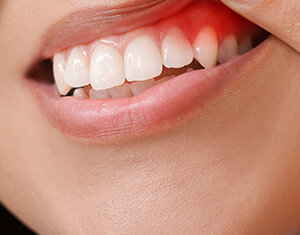Blog
Are Your Gums Bleeding? How To Know If It Is Serious
Oral Care
 Although minor gum bleeding can happen without any serious cause, frequent occurrences should be taken seriously because they might be a sign of a more significant problem. If left unchecked, this could lead to irreversible dental damage.
Although minor gum bleeding can happen without any serious cause, frequent occurrences should be taken seriously because they might be a sign of a more significant problem. If left unchecked, this could lead to irreversible dental damage.
In this article, we will be understanding the underlying causes, distinguishing between temporary triggers and permanent disruptions, and recognising suspect symptoms can help in finding prompt solutions.
Bleeding Gums Causes
While occasional minor gum bleeding may occur innocuously, persistent instances deserve attention as potential indicators of increasing equilibrium disruption necessitating timely intervention. Multiple factors provoke blood vessel fragility and leakage, which causes bleeding in gums:
-
Poor Oral Hygiene
Failing to disrupt plaque bacteria regularly films enable progressive collective virulence eroding gum protection through acid, enzymes and toxins stimulating tissue irritation and inflammatory damage without immune barriers.
-
Gingivitis
At the earliest stage, gum microbes trigger localised vascular swelling and seepage without bone or fibre resorption. Quick action curbs progression.
-
Periodontitis
Left unchecked, maturing biofilm penetration and dysbiosis spread below gums, deteriorating structural integrity for advanced bleeding alongside receding gums, exposure, tooth loosening and eventual loss.
-
Vitamin Deficiencies
Inadequate intake of clotting and vascular-supporting nutrients like Vitamin K and bioflavonoids also precipitate fragility, permitting vascular leakage, often in teams with infection risks compounding susceptibility.
Restoring balance relies on recognising root causes early and promptly addressing shortfalls.
Reasons for Bleeding Gums
Beyond inflammatory, infectious causes, several additional factors provoke vascular leakage presenting as bleeding gums; grasping the full scope illuminates appropriate solutions. The reasons are explained as follows:
-
Medications
Blood thinners like warfarin or potent NSAIDs impair clotting and vessel structural integrity, indirectly amplifying seepage risks from minor tissue irritation that otherwise resolve unnoticed, necessitating professional precautions.
-
New Flossing Routines
Introducing secondary cleansing of neglected zones liberates trapped bacteria and initially stresses delicate tissue before inflammation and swelling settle. Sticking to routines reverses this within days.
-
Hormonal Changes
The sensitive gingiva swells, responding to numerous hormonal fluxes, especially in youth and female reproductive years - lowering immune protection against irritation from existing microbes. Supportive care eases transitions.
Teeth Bleeding Causes
Bleeding around teeth is usually caused by inflamed gums. Finding the source of bleeding is important. Even if you brush and floss carefully, age, genetics, or systemic issues can thin the protective mucosae, causing sensitivity to habitual mechanics. Broken restorations or ill-fitting dental appliances can also irritate the tissue, leading to bleeding.
If you notice bleeding during oral hygiene, chewing, or eating salty foods, it's important to inspect the gumline or margins for irritation. Adjusting or bonding edges can resolve surface-based bleeding, but recurrent issues may require customised care to restore homeostasis.
Toothpaste for Gingivitis
Gingivitis is early-stage gum disease caused by bacterial plaque buildup along tooth and gum lines. It can cause inflammation, bleeding, and sore gums, leading to bad breath and aesthetic concerns.
Specially formulated toothpaste like Dabur Meswak, containing ingredients like stannous fluoride, essential oils, and oxidising agents, can help kill bacteria and reduce the risk of plaque buildup. However, long-term relief requires ongoing prevention of infection risks through regular brushing, flossing, and professional dental cleanings.
Conclusion
Bleeding gums can indicate underlying dental problems. Identifying the causes, such as trauma, infection, or clotting issues, can help find targeted solutions. This can be achieved through the use of gum pastes or dietary adjustments. With Dabur Meswak, maintaining proper oral hygiene and addressing any issues can prevent further deterioration. Oral health is an essential component of overall wellness. Prioritising prevention and early intervention can provide optimal and cost-effective protection.
FAQs
-
When should bleeding gums raise concern?
While minor bleeding may occur innocuously at times, frequent or excessive bleeding should raise concern as it likely indicates an underlying issue like gum infection or vitamin deficiency, necessitating prompt medical and dental evaluation.
-
How can toothpaste help gingivitis and bleeding?
Toothpaste like Dabur Meswak, with ingredients like stannous fluoride, essential oils and CoQ10, helps combat bacteria causing gingivitis infection and inflammation while providing antioxidants to spur rapid gum healing and revitalisation.
-
Can ill-fitting dental work cause bleeding?
Yes, broken restorations or dental appliances with rough protruding edges can chafe and irritate the gum tissue, eliciting localised bleeding when eating or brushing. Adjusting edges resolves sensitivity.
-
How to stop bleeding from hormonal changes?
Hormone-induced gum sensitivity and swelling may lead to bleeding. Still, they can be managed through gentle oral hygiene care, mild rinses, vitamin C intake and professional cleanings to ease transitions and support tissue resilience.
-
When to see a dentist for bleeding gums?
Although minor gum bleeding may warrant only observation, persistent or excessive bleeding necessitates prompt medical and dental examination to determine underlying causes, rule out disorders and receive specific treatment.























